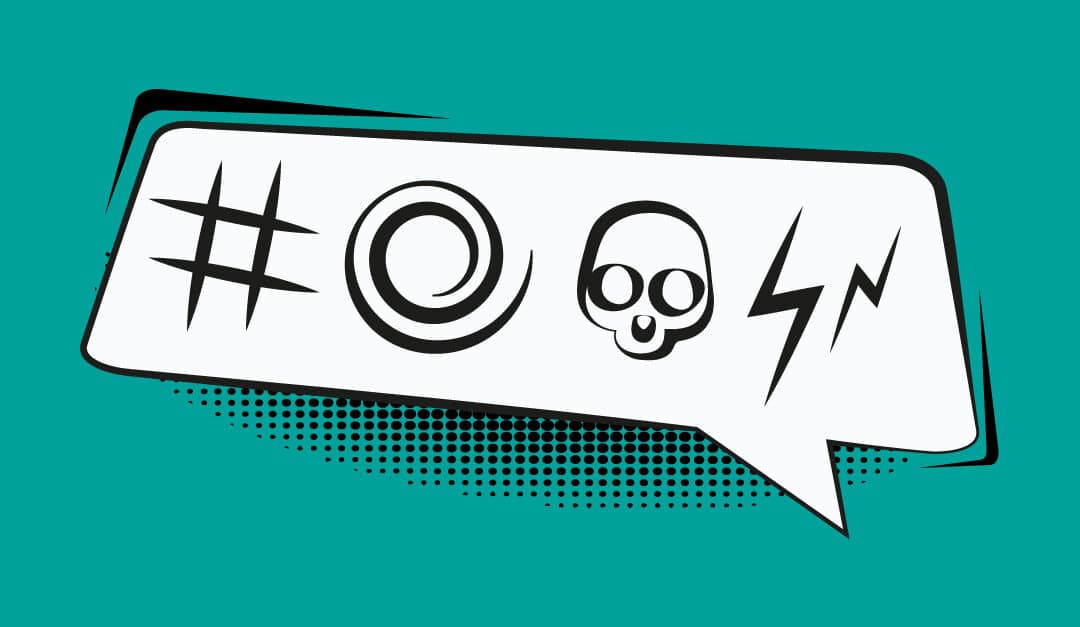Are you looking to spend your vacation days far away from your country? Maybe you want to relax but at the same time explore a new place and its culture. Have you’ve been looking at the beautiful beaches and cool resorts of the Dominican Republic?
If not, you should. It’s a popular country for tourists for a reason. It’s beautiful, you can relax on their beaches, visit their beautiful cathedral in Santo Domingo, and chat with their warm people. But if you want to do the last one, you need to know Spanish.
When in a Hispanic country, you can engage in conversations with locals just with the Spanish you learned at school.
Though, if you want to sound more fluent and understand them better, you must learn their everyday words and expressions. That includes swear words. Sadly, those are things that schools don’t usually teach you.
We get it, how could they teach you an insult or swear word? That doesn’t match their principles. But in terms of language, you should know them, because natives use them daily.
So, here at TruFluency we’ve given ourselves to the task of teaching you some important Dominican Republic swear words. Just in case you’re finally convinced of visiting that awesome country and want to make some Dominican friends.
15 Spanish Swear Words You Might Hear in Dominican Republic
1. Mamagüevo
This is a combination of the words “mamar” (to suck) and “huevo” (egg), which sounds like “güevo”. “Huevos” it’s also how some people call the testicles; it’s like saying balls.
So “mamagüevo” is like saying “cocksucker”, quite a strong insult. Another common way of saying it is “mamagüevaso”. You can also find it written down as “MMG”.
2. Singa tu madre
“Singa” is “to fuck/have sex”, “tu” is you/your and “madre” is mom. So, you can only imagine what this expression means. It’s used when you’re very angry at someone, because it’s a strong insult.
3. Azaroso
“Azaroso” is somebody unfortunate or that has misfortune. If a Dominican calls you this, it means that you’re annoying. Or that you are always being negative and putting bad vibes onto things or situations. You can combine this word with other insults to make the offense more intense.
4. Lambe tallo
This is just like “mamagüevo”. You can also find it by its initials: “LT”.
5. Bajo a miao
Though “bajo” usually means “low”, in the Dominican Republic it’s a very strong, disgusting, smell. And “miao” is urine. So, if somebody tells you this insult, they’re saying you smell like urine.
But of course, it doesn’t have to be literally, they just say it as an offense. You might also hear that people combine the word “miao” with other insults to make a stronger offense.
6. Bajo a grajo
Another swear word with “bajo”, in fact you’re going to hear various insults with that word. In this case, “grajo” refers to the bad smell of the armpits or sweat. So, once again, they’re using a bad smell as an insult.
7. ¡La creta!
La creta means vagina, so that’s where this swear word comes from. But rather than an insult, it’s used as an expression for when you’re surprised, shocked, in pain, or angry.
Thus, the exclamation marks. Despite that, it’s still considered a swear word, because it’s not the nicest expression, just check the original meaning. An example could be: “¡La cresta, me he pegado en el meñique!” (Fuck, I hit myself on the pinkie!)
8. Cuero
Though in some Spanish speaking countries “cuero” is calling someone hot, in the Dominican Republic it means a whore or a prostitute. That’s why there you can hear the word “cuero” by itself when someone wants to insult another person.
Or you can hear it in a phrase, like “hijo de cuero”. It means “son of a whore” or the more popular “son of a bitch”.
9. Salta patra
It means someone that is unable to excel at life, because they lack the skills for it. For example: “Él quiere ser un mantenido para siempre, no estudia ni trabaja, no es más que un salta patra”. (He wants to be a kept man forever; he doesn’t study nor has a job; he’s nothing but mediocre).
10. Hijo de la semilla
Though “semilla” means “seed”, in the Dominican Republic it’s also used as a way of referring to the clitoris. So, “hijo de la semilla” would be “son of a clitoris”, but it’s just another expression like “son of a bitch”.
You might also hear other insults with “semilla”, like “cara de semilla”.
11. Arraca vaca
This is a person that has no money or it’s poor. People also use it as an insult.
12. Lambón
A “lambón” is the person that’s always giving compliments to others just to get something from them. Basically, it’s a bootlicker.
If you want to make it stronger, you can add a “maldito” (damned): “Maldito lambón”. Or just combine it with any other insults as well. Don’t forget that “lambón” is for men and “lambona” for women.
13. Hijo de la gran puta
In Spanish there’s the “hijo de puta” insult. “Hijo de la gran puta” is a variation of it, as they add the “gran”, which means “big/great”. This makes the insult more intense. “Hijo” is son/kid and “puta” is whore. So, this is like saying “son of a bitch” or “whoreson”.
14. Mamasihaya
“Mamar” is to suck and there are many Spanish swear words with this word. “Mamasihaya” means to suck it if you find it. But more than using it as a way of telling you to do that, it’s also used as an insulting nickname.
So, “mamasihaya” is the person that sucks it if they find it. For example: “you’re a mamasihaya”. You can also find it as “mamasijalla” or “mamasijaya”.
15. Comeavece
If you decompose this word, you can see that it comes from “comer a veces”, which means “to eat sometimes”. So, it’s an insult to how someone doesn’t always eat because of their economic status.
Learn Other Useful Spanish Vocabulary with TruFluency
Now you’ve learned some of the most common Dominican Spanish curse words. This will make you sound more fluent and impress natives. But if you really want to master the language, you need to learn more useful words.
This could go from classic vocabulary to other kinds of slang, like idioms. More importantly, you need to put it into practice. You’ll do all of that with our TruFluency Spanish classes.
We have native teachers that will make sure you learn everything you’ll need in a real-life conversation. Plus, they’ll make you speak in every class, because that’s the best way to achieve Spanish fluency. And hey, all our classes are customized to your goals and needs, in case you have a specific language goal.
Oh and don’t worry about moving away or on a work trip, all classes are completely online. So you can study with us from anywhere in the world! All you have to do is choose one of our monthly subscription packages for 4, 8 or 12 lessons. If you want proof of how well we work, take our 2-hour trial class for only $49!





